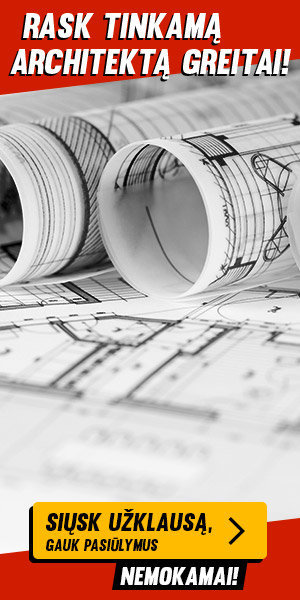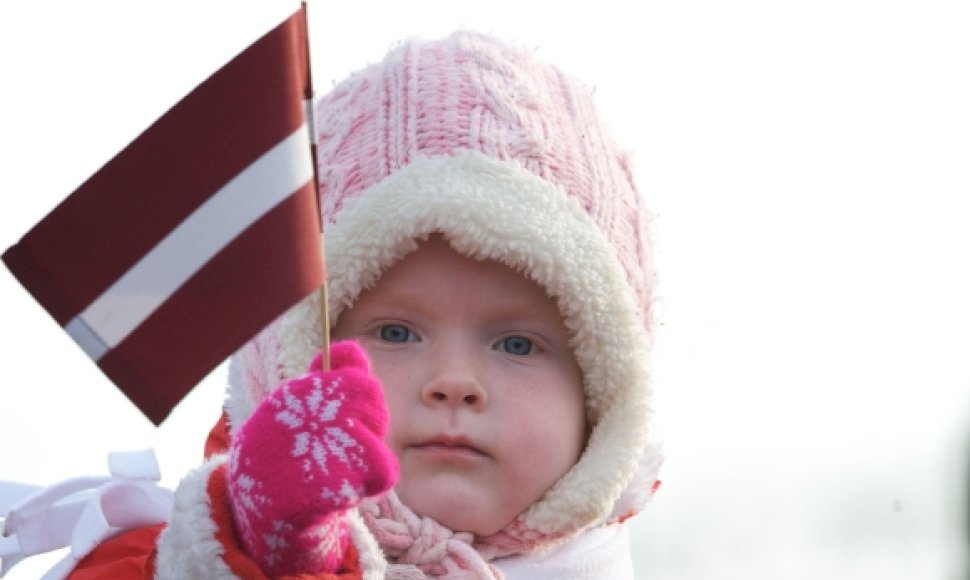The referendum subject is an appeal to amend the Satversme (Constitution) with an aim to grant the Russian language the status of the second official state language.
The language referendum was initiated by an NGO called Native Tongue, founded by Aleksandr Gaponenko, Eduard Svatkov, Vladimir Linderman, and Yevgeniy Osipov. In a cynical way, the name has been borrowed from the title of probably the most famous Awakening period song of protest, “Dzimtā valoda,” performed by the popular group Līvi and sung in defense of the Latvian language during the Perestroika era in the USSR, 1988-1990.
The leaders of the organization are notorious both for their public and political activities. The most visible face of the NGO, Vladimir Linderman, is presented in Wikipedia as a politician of Jewish origin, active both in Russia and Latvia and leader of the party of National Bolsheviks in both countries. Linderman has worked in the Russian editorial office of the paper Atmoda (Awakening); later he published a semi-pornographic paper called Jesce.
A leader of the Latvian branch of the NBP since 2002, Linderman is also a member of the Central Committee of the National Bolshevik Party. In 2003 Vladimir Linderman was arrested and imprisoned in Russia. In 2007 he was one of the organizers of the Dissenters March. Linderman was deported from Russia to Latvia in 2008. He was accused of storing explosives and of calling for the overthrow of the political system. In 2008, Linderman was for several months held in a temporary detention facility in Riga, though he has been found innocent by Latvian courts. In 2009, Linderman became the founder and leader of the Latvian political party 13th of January Movement.
Supporters of the second language claim that Russian speakers suffer discrimination in Latvia.
The Referendum procedure initiated by Native Tongue is described in Article 78 and 79 of the Satversme (Constitution). The constitution stipulates: “Electors, in number comprising no less than one-tenth of the electorate, have the right to submit a fully elaborate draft of an amendment to the Constitution or of a law to the President, who shall present it to the Saeima (Parliament). If the Saeima does not adopt it without changes as to its content, it shall then be submitted to national referendum. An amendment to the Constitution submitted for national referendum shall be deemed adopted if at least half of the electorate has voted in favor.”
In autumn 2011, the claim for amendments in the articles 4,18,21,101 and 104 of the Satversme (Constitution) was signed by 187,378 citizens, a number even slightly above one-tenth of the electorate. However, for amendments to be adopted, 771,350 votes of support are needed in the national referendum.
The Russian language in Latvia is the language most widely used by ethnic minorities (37.5% of inhabitants have named it as their mother tongue, while only 29.6% of inhabitants are ethnic Russians, according to statistical data from 2000).
The supporters of the second language claim that Russian speakers suffer discrimination in Latvia. However, statistical data prove just the opposite. The number of people who can speak Russian in Latvia is greater than that of those who can speak Latvian: 94% vs. 91%. This clearly shows that the majority of ethnic Latvians are quite fluent in the Russian language, while not all ethnic Russians use the Latvian language, which is the national language. Fluency in the national language would normally be expected in any other European country.
One of the reasons for this is the historical heritage of the Soviet occupation period, during which the ethnic composition of the nation was deliberately upset by massively introducing settlers, particularly in the production and military sectors. Thus already in 1959 the proportion of ethnic Russians in the population changed from 8.8% in 1938 to 26.6% in 1958. In 1990 the risk of the Latvian nation to perish was especially high: only 52% of the population consisted of ethnic Latvians.
Presently, also due to a large exodus from the country caused by the grim effects of the economic crisis, the proportion of ethnic Latvians in the population has risen and now makes up 62.1% (according to data from the 2011 Census).
The Russians, however, have chosen to settle mainly in the bigger cities of Latvia: Rīga, Daugavpils, and Rēzekne, where their proportion is over 40%. Only 15% of Russians reside in rural municipalities, but in some parts of Latgale they form the majority.
Apart from Russian authorities and the media, no visible international attention is being paid to the event. There are probably two reasons for this: first, the referendum is clearly a domestic issue; and, second, there are ethnic minorities in all European countries, even more so in Russia.
Besides, due to the fact that language and ethnic relations issues are very sensitive for all nations and ethnic groups, Latvia can be an example of a democracy where even such delicate questions are solved democratically and according to the procedure prescribed by the Constitution.
Former Latvian president Vaira Vīķe-Freiberga thinks that the referendum will play into the hands of Russian politicians and give them a pretext for criticism. The first Latvian head of state after resuming independence, Anatolijs Gorbunovs, however, is sure that “other nations will respect Latvia as a country showing particular strength and allowing a referendum on the issue of the state language.”
Though from the very beginning politicians and experts had held a unanimous opinion that the referendum was doomed to failure, the public statements made by the president and many politicians had altered in the run-up to the event. Originally, President Andris Bērziņš considered that the event should be ignored, because it was clearly a provocation. However, after such a large number of citizens chose to sign the petition to amend the Constitution, the procedure has to be taken seriously. Vaira Vīķe-Freiberga has appealed to the citizens to be active and take part in the voting, because the results of the referendum will become a subject to be closely scrutinized not only by Latvian political analysts and policy makers, but also those of European and global organizations and the media.
January polls showed that only 25% of citizens who are economically active would support the referendum issue. 59% of citizens planned to vote against giving the Russian language the status of a second state language.
Later in January, there emerged a risk that the number of supporters for the Constitutional amendments might grow. The National Alliance supported by several members of the Unity and Farmers groups in the parliament signed an appeal to the Constitutional Court to suspend the referendum on the grounds that the referendum issues confront the very kernel of the Constitution.
The Constitutional Court, however, decided against the suspension of the referendum, since it was a part of the legislation which was yet in progress. At the same time it has started a case that will look at the legislative frame defining these procedures, including several acts of law apart from the Constitution itself.
This decision was greeted by President Bērziņš and leaders of two coalition parties, Unity and Zatlers Reform Party, while the National Alliance was disappointed.
Many politicians – among them the state president; the Saeima chairperson and chair of the Unity party, Solvita Āboltiņa; the former head of the Popular Front movement, Dainis Īvāns; the head of the Culture and Education Committee at the Saeima, Ina Druviete – have stressed that the referendum deepens the differences and ethnic strain in the society of Latvia, as well as is a threat to the very existence of the nation. Several leading coalition politicians, also Foreign Minister Edgars Rinkevičs (ZRP), have openly admitted they will participate in the referendum and vote against amendments in the Constitution. At the same time they have emphasized the need to strengthen the interethnic dialogue and promote inclusive and integrated society, with the Latvian language being one of its basic values.
Though initially there was some likelihood that taxpayers’ money might have been used in the referendum campaign, the so called “Latvian parties” of the parliament will not do so to address the people on the issue. Instead, they are using the party funds to call upon the citizens to attend the vote and defend the Latvian language.
On the contrary, the leaders of the Harmony Center, Jānis Urbanovičs and Nils Ušakovs, have both said they will side with their voters and sign in favor of the Russian language to become a state language.
At any rate, the Referendum has not improved interethnic dialogue in Latvia.
Parallel to this, there had emerged several popular initiatives and movements in defense of the native Latvian language, with an aim to appeal to the citizens to demonstrate unity and actively take part in the vote and safeguard the Latvian language as a guarantee of Latvian state and Latvian identity. Many authority leaders and culture personalities publicly addressed the public with similar appeals.
A representative of the Russian student fraternity Fraternitas Arctica, Dimitrijs Trofimovs, gained public attention by signing the joint appeal of the corporations. He called to say no to the attempt to raise hatred among ethnic groups and nationalities in Latvia, as well as to vote against crushing the foundations of the Latvian state. He deemed that the Latvian language is one that unites all the peoples living here and creates affinity with Latvia. This view is shared by many popular arts and culture personalities of Russian origin, among them sculptor Gļebs Panteļejevs, stage director Mihails Gruzdovs, and journalist Marina Kosteņecka.
The newly elected Council of Europe Commissioner for Human Rights, Nils Muižnieks, speaks out on the subject in The Baltic Times: “I’m a bit angry when I am asked such a stupid question – whether I want two state languages or not. I believe that we already answered the question in 1992 and 1993, and I do not understand why we have returned to it.” He said he would participate in the referendum and vote against.
At any rate, the Referendum has not improved interethnic dialogue in Latvia. On the contrary, it has heightened the strain on both sides, widening the gulf. It has opened old resentments and wounds. And additional effort will be needed to resume a serious and sincere debate among involved parties.
However, we should by no means discard the language policy, education policy, and integration policy as inefficient or unsuccessful. Immense progress has been achieved in all these principal policies in Latvia, which have contributed to shaping an inclusive society.
The education policy is one of the most generous in Europe with the state financing education programs in eight minority languages: Russian, Polish, Jewish, Ukrainian, Estonian, Lithuanian, Roma and Belorussian. In addition to that, the Latvian language proficiency among school leavers has improved, they can adequately qualify for higher education.
Three principal questions have yet to be addressed. First, how to implement an educational system that is as liberal and generous as the Latvian system and not reproduce segregation? Second, how to mature in politics and reach a political system in which political parties are not defined according to their attitude to the ethnic issue? And third, how to increase the sense of belonging and trust in the Latvian state among citizens of all ethnic groups?
This is a task that politicians cannot tackle alone.
The article originally appeared in the Baltic Review















